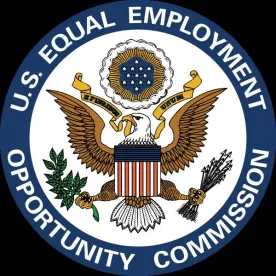On April 9, 2020, the EEOC issued additional, revised technical assistance to employers as to best practices for balancing obligations under the Americans with Disabilities Act (ADA) with adherence to guidance from the Center for Disease Control (CDC) and state and local public health authorities regarding the COVID-19 pandemic. The EEOC also updated its existing Pandemic Preparedness in the Workplace and the Americans with Disabilities Act guidance.
In its latest guidance, the EEOC continues to emphasize that the ADA “do[es] not interfere with or prevent employers from following guidelines made by the CDC or state/local public health authorities” regarding COVID-19. This is particularly noteworthy in light of the growing number of state health department recommendations that employers “screen” employees for COVID-19.
The EEOC’s updated guidance addressed the following subjects:
-
Testing and Medical Exams. The EEOC reaffirmed that during a pandemic, employers may ask employees who call in sick if they are experiencing COVID-19 related symptoms (including symptoms related to COVID-19 identified in EEOC guidance or those identified by public health authorities).
-
Confidential Medical Information. Many employers have been concerned about the need to disclose the names of employees who have been diagnosed with COVID-19 to ensure non-infected employees are aware of potential health risks. Though the EEOC in a March webinar stated that disclosing infected employees by name could violate the ADA’s prohibition on disclosing confidential medical information, the EEOC’s updated guidance appears to relax its position in certain respects. Specifically, the EEOC now states that contractors and staffing agencies may disclose the identity of an employee with COVID if they placed that individual in another employers’ worksite. In addition, employers may likewise disclose infected employee names to public health agencies if they learn an employee has been diagnosed with COVID-19. The EEOC’s updated guidance reiterates that employers must keep any medical information (including any of testing or medical information, and employee temperature logs) separate and confidential from an employee’s personnel file.
-
Hiring. The updated guidance further reiterates that employers may delay or withdraw job offers to applicants that have COVID-19 or symptoms associated with the virus, but clarifies that employers may not postpone start dates of individuals simply because they are at higher risk from COVID (such as pregnant employees or those over 65).
-
Reasonable Accommodations. The EEOC has not stated that a COVID-19 infection is a disability. Thus, an employee’s COVID-19 infection does not require an employer to provide a reasonable accommodation under the ADA. Nevertheless, the new guidance encourages employers to continue to accommodate individuals with disabilities if they are subject to an increased risk for COVID-19. Specifically, the EEOC suggests that if an employee has a disability that makes them more susceptible to COVID-19, employers should consider temporary job restructuring of marginal job duties or other accommodations to reasonably accommodate this request (such as potential physical barriers, job restructuring, or modified shift assignments). Similarly, if an employee’s preexisting mental illness has been exacerbated by the stress of the COVID-19 pandemic, the EEOC encourages employers to explore possible reasonable accommodations through an interactive dialogue to identify options that may enable those employees to continue working. The EEOC encourages employers not to postpone discussing workplace accommodations that will only become necessary once an employee is no longer teleworking, and to continue engaging in interactive dialogues with employees receiving accommodations.
-
Discrimination. In addition to the agency’s guidance regarding testing and accommodations under the ADA, the EEOC also encourages employers to guard against discrimination and harassment based on national origin, race, or other prohibited bases in their workforces that may stem from misdirected fear related to the COVID-19 virus. Further, the EEOC reminded employers of their obligations under the Older Workers Benefit Protect Act when conducting mass layoffs that involve releases of age-discrimination claims.




 />i
/>i
